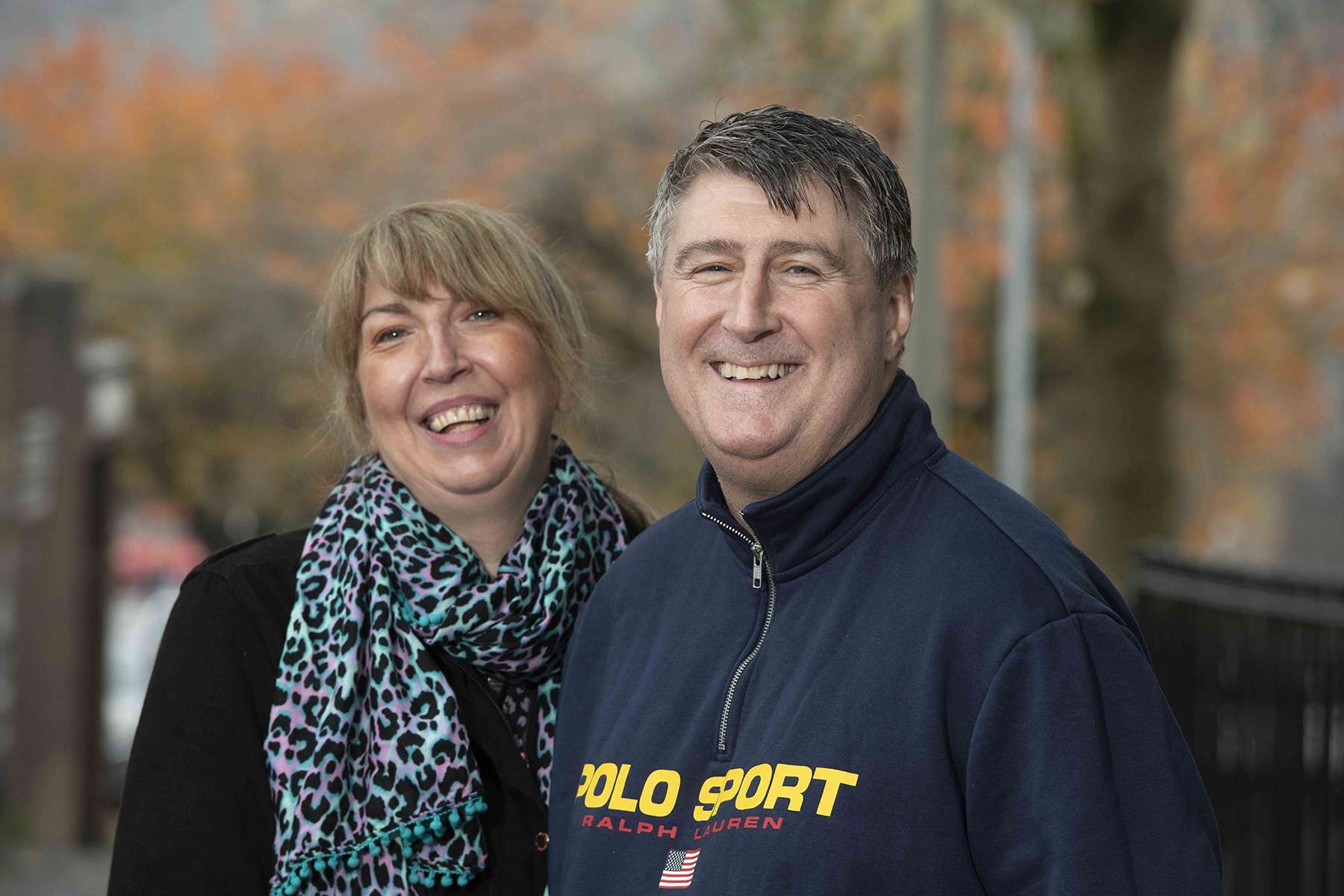Tuesday 31 December
A new experimental drug for the most common form of bladder cancer is showing promising results and could improve outcomes for patients in the future.
The new drug which is a targeted chemotherapy is specially designed to recognise and attach itself to a protein which is found on the surface of some tumour cells. Once attached, it can kill the cancer.
One patient who has been on this clinical trial at The Christie NHS Foundation Trust in Manchester for just over a year is Paul Simmonite (53) from Trawden, near Colne in Lancashire.

Paul, who together with his wife Claire, run a deli called Dobsons Cooked Meats, in Keighley, West Yorkshire. It was while working there in August 2021 that he passed blood when going to the toilet, and went straight to A&E where a scan found his bladder contained a cancerous tumour. Despite feeling fit and well, and having had no previous symptoms, he was diagnosed with stage 3 urothelial carcinoma, the most common type of bladder cancer.
Paul had surgery to remove the bladder, prostate and lymph nodes at his local hospital in October 2021. Due to Covid restrictions at the time, he spent three weeks in hospital including four days in intensive care without being allowed visitors. Initially the operation appeared to be successful with a scan after the operation showing no signs of cancer.
However, in May 2022 he started to experience extreme pain in his pelvis which meant he struggled to walk, and a CT scan revealed his cancer had returned and tumours were found in his pelvis, liver and lung.
Despite having chemotherapy and immunotherapy, the cancer progressed, With no other treatment options available to him, Paul was told about a clinical trial, which was recruiting patients at The Christie, and that he could be eligible for it. This is because high levels of the specific protein the drug targets are found on the surface of many bladder cancer patients’ tumours. He agreed to take part in this research at the National Institute for Health and Care Research (NIHR) Manchester Clinical Research Facility (CRF) at The Christie and started having treatment in September 2023. He travels every week from his home in Lancashire to The Christie in Withington, south Manchester for treatment which is given to him intravenously through a tube inserted in the arm. He has seen his cancer reduce by more than 60% in his liver while on the experimental treatment.
Dr Louise Carter, consultant oncologist at The Christie who is leading on this clinical trial at The Christie said:
“Paul has responded really well to this experimental therapy and it’s hard to see any cancer on his scans in the liver. This clinical trial indicates that this new experimental drug could deliver promising results for bladder cancer patients, and potentially for other cancers.”
“Almost half of the patients with bladder cancer who took part in the study benefited from the treatment, and it was generally well tolerated, with few side-effects. This is an important development in the treatment of this cancer, and I hope it will change clinical practice in the future. However, more research is needed to confirm these exciting results in a large group of patients. We are now planning to do further work with this drug in other cancer types including breast and lung cancer very soon.”

Deli owner Paul Simmonite, who was a talented cricketer in his youth, said:
“I would say to anyone, if standard treatment isn’t working for you, then ask about clinical trials. I’m so glad I did. You are so well cared for when on a clinical trial and I see a doctor every week, so there’s nothing to worry about.
I just let them do what they need to do. I feel well in myself, although I’m very tired. I’m lucky to have the support of my wife, Claire, who runs the business for us on a daily basis.”
Bladder cancer is the 11th most common cancer in the UK, accounting for 3% of all new cancer cases (2017-2019). It is predicted there could be approximately 10,700 new cases of bladder cancer every year in the UK by 2038-2040. (Source: CRUK). Urothelial carcinoma is the most common form of bladder cancer, accounting for around 90% of cases.
Any patients interested in taking part in any research at The Christie should discuss this option with their consultant. Not all patients will fit the criteria for a specific trial. While clinical trials can be successful for some patients, outcomes can vary from case to case.
⇒ More information about taking part in clinical trials can be found here.
